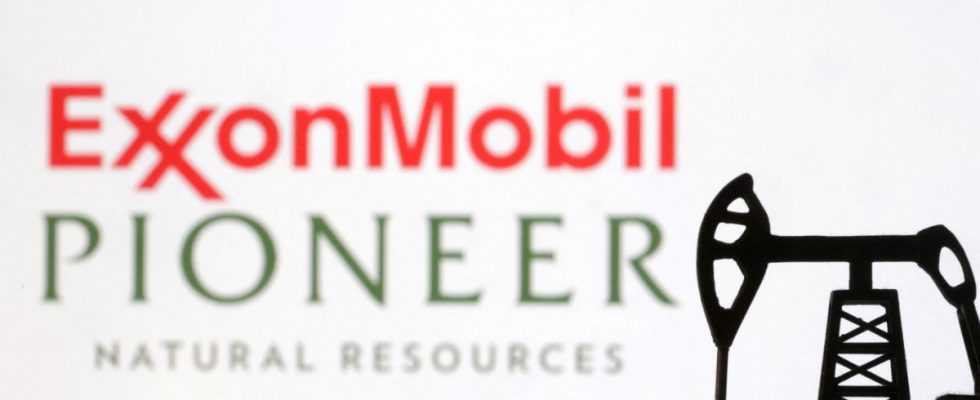Mega takeover in the oil industry: The US oil giant Exxon Mobil buys its competitor Pioneer Natural Resources. The purchase price was $59.5 billion, Exxon announced on Wednesday. The billion-dollar deal had been apparent for a week. The takeover is the largest ever this year and Exxon’s biggest deal since 1998, when the oil giant swallowed the Mobil company for $81 billion. No cash will be involved in the purchase; Pioneer shareholders will receive Exxon shares instead. The oil giant is offering $253 per Pioneer share, which closed at $237 on Tuesday. Since the first reports of the Wall Street Journal They had risen by around eleven percent over the planned deal at the end of last week.
With the purchase, the largest oil producer in the USA is expanding its presence in one of the most lucrative regions of the US oil sector. Pioneer is the third largest oil producer in the Permian Basin after Chevron and Conoco-Phillips. There are huge amounts of shale oil there, which is obtained using the controversial fracking method. The area spans parts of the states of Texas and New Mexico and is the most sought-after region for the U.S. energy industry because of its relatively low cost of oil and gas production.
In the past two years, Exxon fought its way out of the loss zone and paid off a large mountain of debt by cutting costs, selling numerous assets and supported by high energy prices. CEO Darren Woods had blocked the demands of investors and politicians to follow the course of the European oil companies and rely on renewable energies. Despite strong criticism, he stuck to a strategy that was heavily dependent on oil. This paid off for the company: Last year, Exxon achieved a record profit of $56 billion. Analysts say the company has set aside about $30 billion to prepare for acquisitions. According to antitrust experts, Exxon and Pioneer have a good chance of completing the takeover – despite possibly strict scrutiny. You could argue that together they only cover a small portion of the huge global oil and gas market.

